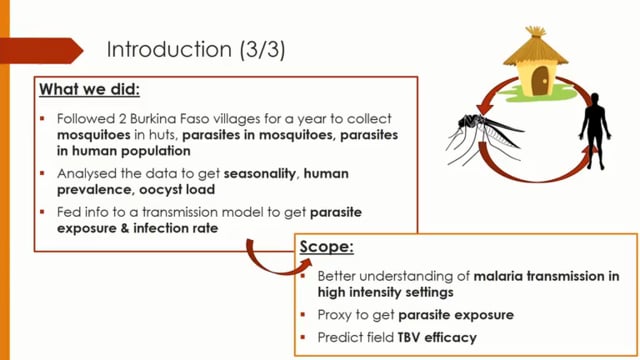Last Updated: 03/08/2023
Understanding the mechanism that determines the pathogenicity and ability to transmit to mosquitoes of Plasmodium falciparum based on clinical samples derived from malaria patients
Objectives
*Original title and abstract were machine translated from Japanese.
This study will identify protozoan and human-derived molecules that control the virulence of Plasmodium falciparum to humans and its ability to transmit to mosquitoes.
Molecular biological and immunological analyzes of virulence and transmissibility of Plasmodium falciparum will be performed in the Japanese laboratory using patient sera and clinical isolates collected from hospitals in Kenya, a malaria endemic area. This research will deepen existing understanding of the molecular mechanisms by which Plasmodium falciparum parasites skillfully parasitize two hosts, humans and mosquitoes, and clinical development of virulence and transmission inhibitors targeting the protozoan and human molecules identified in this research. Social implementation by developing research. In the current fiscal year, the research team will collect and transport clinical samples from Kenya, an endemic area, and establish pathogenicity evaluation, transmissibility evaluation, and immunological analysis systems using clinical samples.
Apr 2022 — Mar 2025


